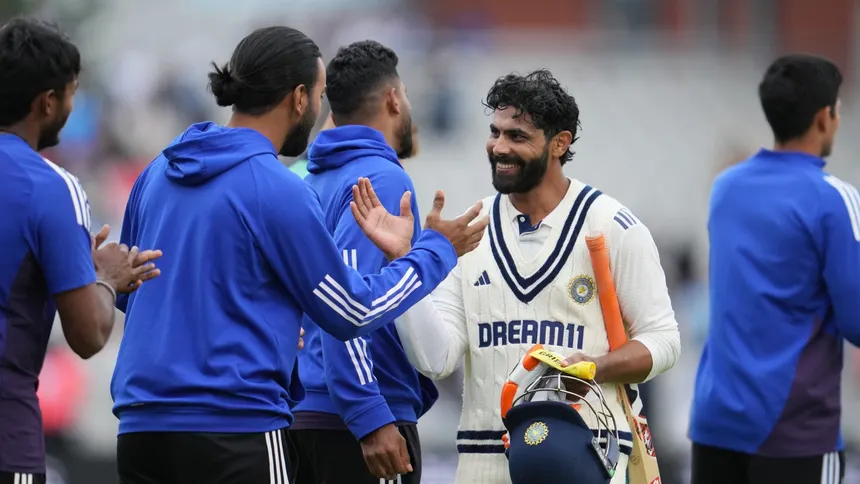
India’s epic fightback in the fourth Test at Old Trafford has been celebrated as “a draw that feels like a win,” with the team and fans lauding the monumental resistance from the lower order that kept the series alive. Facing a daunting 311-run deficit after being reduced to 0/2 in their second innings, India mounted one of their most resilient performances in recent Test history to escape with honours intact.
Captain Shubman Gill anchored the recovery with a masterful century, stitching a vital stand with KL Rahul to steady the innings. But the defining chapter came from the lower order. Ravindra Jadeja and Washington Sundar, batting under relentless pressure, blunted England’s attack over five sessions. Both reached unbeaten centuries, their defiance turning what seemed destined to be a crushing defeat into a result that reignited the series heading into the decisive fifth Test at The Oval.
The draw was more than just survival. For India, it symbolised character and collective will. Gill described it as “no less than a win,” praising his team for the composure and grit shown in the face of adversity. Head coach Gautam Gambhir echoed the sentiment, calling it a performance that embodied the values of resilience and fight he expects from the side.
The lower-order partnership drew widespread admiration. Washington Sundar, who celebrated his maiden Test century, credited Gambhir’s stirring message before the final day—“Just fight for the entire day”—as the spark behind their remarkable stand. Jadeja’s calm under fire and Sundar’s disciplined shot selection turned the final day into a showcase of determination against a world-class bowling unit.
Cricket pundits were unanimous in hailing the effort. Former India players called it one of the greatest rearguard actions in modern Test cricket. Even neutral observers praised the mental strength of a young Indian team that refused to buckle under pressure. Some analysts suggested the psychological impact of the draw could rival that of a win, with England now carrying the weight of a missed opportunity into the series decider.
For India, this draw represents more than just a result on paper. It stands as proof of a side evolving under new leadership, capable of digging deep when the situation demands. It also reinforces the value of Test cricket’s traditional virtues—patience, courage, and the will to fight until the very end.
As the teams prepare for the final showdown at The Oval, India carry not just a series lifeline but also a surge of belief. The Old Trafford epic has reminded the cricketing world that sometimes, survival itself becomes victory, and that the fight to save a match can resonate as powerfully as winning one.

